Have you ever found yourself in a situation where a friend, partner, or acquaintance suddenly declares, “I’m so ugly”? It’s a heart-wrenching moment that catches many of us off guard. As someone who’s been there, I know the struggle of wanting to boost their self-esteem without sounding insincere.
I’ve walked this tightrope with friends and dates alike, always aiming to lift their spirits while maintaining authenticity. That’s why I’ve compiled this comprehensive list of 80 responses for when a guy calls himself ugly. Consider it your toolkit for navigating these delicate moments with grace and empathy.
From compassionate words to humorous quips, and from thought-provoking questions to actionable advice, these responses cover all bases. They’re designed to fit various relationships and moods, helping you turn his self-doubt into self-appreciation.
Are you ready to make a positive impact on someone’s self-image? Let’s dive into these uplifting replies and learn how to combat negative self-talk effectively!
Compassionate and Supportive Responses
- “I’m sorry you’re feeling that way about yourself. I see so much more in you.” This response acknowledges his feelings while gently challenging his perspective. It shows empathy and offers a different viewpoint.
- “You know, we’re often our own harshest critics. I wish you could see yourself through my eyes.” Reminding him that our self-perception is often skewed can be eye-opening and comforting.
- “That’s not true at all. What makes you say that?” Encouraging him to explore the root of his feelings can lead to a deeper, more meaningful conversation about his self-image.
- “I hate hearing you talk about yourself that way. You have so many amazing qualities.” Expressing your discomfort with his self-criticism can prompt him to reconsider his words and focus on his positive attributes.
- “Everyone has days when they don’t feel their best. But that doesn’t define who you are.” This response normalizes his feelings while putting them in perspective, reminding him that self-worth isn’t tied to temporary feelings.
- “I understand feeling insecure sometimes, but I hope you know how wonderful you truly are.” Showing empathy while reinforcing your positive view of him can be a powerful combination.
- “Your worth isn’t determined by your appearance. You’re so much more than that.” Reminding him of the bigger picture can help shift his focus from physical appearance to his overall value as a person.
- “It breaks my heart to hear you say that. You’re incredible, inside and out.” Expressing how his words affect you can make him more aware of their impact and the positive qualities you see in him.
- “I wish I could lend you my eyes for a day so you could see how amazing you are.” This poetic response can be particularly touching, highlighting the disparity between his self-view and how others perceive him.
- “You’re entitled to your opinion, but I respectfully disagree. Here’s what I see…” Acknowledging his view while firmly stating your own can be powerful. Follow up with specific positive qualities you’ve observed.
Humorous Deflections
- “Ugly? You must be looking at a funhouse mirror then!” A playful way to challenge his perception without being too serious, introducing a light-hearted element to the conversation.
- “Ugly? No way! You’re a solid 9.5… out of 5!” This over-the-top compliment can lighten the mood and make him smile, subtly challenging his negative self-talk.
- “If you’re ugly, then I must be a swamp monster. Wanna form a club?” Self-deprecating humor can help him feel less alone in his insecurities and create a sense of camaraderie.
- “Ugly? Please. You’re so handsome, statues get jealous when you walk by.” An exaggerated compliment that’s sure to get a chuckle and boost his mood.
- “Ugly? Nah, you’re just not your type!” This clever response suggests that beauty is subjective and that his perception might not align with others’.
- “Well, if you’re ugly, then ugly is the new gorgeous!” Turning his words on their head in a humorous way can help reframe his thinking about attractiveness.
- “Ugly? You misspelled ‘ruggedly handsome’.” A playful correction that contradicts his self-criticism while paying him a compliment.
- “If you’re ugly, then I need to get my eyes checked because all I see is awesome.” This response combines humor with a genuine compliment, reinforcing your positive perception of him.
- “Ugly? Oh no, did someone cast an ugly spell on you? Quick, look in the mirror and say ‘handsome’ three times!” A whimsical response that plays with the idea of magic and self-perception, encouraging positive self-talk in a fun way.
- “Ugly? Are you fishing for compliments? Because you just caught a big one – you’re fantastic!” Calling out potential compliment-fishing in a lighthearted way while still offering affirmation.
Redirecting the Conversation
- “Let’s talk about what makes you feel good about yourself instead.” Shifting the focus to positive self-reflection can be helpful in boosting his self-esteem.
- “I’d rather hear about your favorite feature. What do you like most about yourself?” Encouraging him to focus on his positive attributes can help counter negative self-talk.
- “Appearance isn’t everything. Tell me about a time you felt really proud of yourself.” This response steers the conversation towards accomplishments and character, emphasizing inner beauty.
- “Instead of focusing on looks, let’s talk about what makes you an awesome person.” Redirecting to personality traits and actions can boost self-esteem and highlight non-physical qualities.
- “You know what’s really attractive? Confidence. Let’s work on building that up.” This response acknowledges the importance of self-assurance and offers support in developing it.
- “I’m more interested in hearing about your passions. What gets you excited?” Shifting to topics he’s passionate about can help improve his mood and self-perception.
- “Let’s make a list of your best qualities. I’ll start: you’re kind, funny, and…” Actively listing his positive traits can be a powerful exercise in recognizing his worth.
- “How about we focus on what you can do rather than how you look?” This response emphasizes abilities over appearance, promoting a more holistic view of self-worth.
- “I’d love to hear about a goal you’re working towards. That’s what really matters.” Focusing on aspirations can boost motivation and self-worth, shifting attention to personal growth.
- “Let’s talk about the last time you made someone smile. That’s true beauty.” This response redefines beauty in terms of positive impact on others, emphasizing kindness and empathy.
Complimentary Responses
- “Are you kidding? Your smile lights up the room!” Highlighting a specific feature can feel more genuine than general compliments and draw attention to positive physical attributes.
- “Ugly? No way. You’ve got those gorgeous eyes that crinkle when you laugh.” Specific, detailed compliments are often more believable and can help him see himself in a new light.
- “I love how expressive your face is. It’s one of your best features.” Complimenting something beyond conventional attractiveness can be meaningful and unique.
- “You’ve got that classic, timeless look. Like a young [insert classic movie star].” Comparing him to a well-known attractive figure can boost confidence and provide a flattering perspective.
- “Your style is always on point. You’ve got great taste.” Complimenting his choices rather than innate features can be empowering and acknowledge his personal efforts.
- “You’ve got such a warm, inviting presence. It’s really attractive.” Focusing on the overall impression he gives can be powerful, emphasizing charisma over physical features.
- “I love how your whole face lights up when you talk about [his passion].” Tying his appearance to his enthusiasm can be a unique compliment that highlights both physical and personality traits.
- “You’ve got that rugged, manly charm. It’s very appealing.” Emphasizing traditionally masculine traits can boost some men’s confidence and highlight attractive qualities.
- “Your voice is so soothing. I could listen to you talk all day.” Complimenting non-visual attributes can be unexpected and appreciated, broadening the concept of attractiveness.
- “You’ve got great bone structure. You could be a model!” Pointing out conventionally attractive features can contradict his self-perception and boost confidence.
Thought-Provoking Responses
- “What would you say to a friend who called themselves ugly?” This question can help him realize how harsh he’s being on himself and encourage more self-compassion.
- “Do you think people who care about you see you that way?” Encouraging him to consider others’ perspectives can be eye-opening and challenge his negative self-view.
- “How do you define beauty? Because I bet you embody a lot of those qualities.” This response challenges him to think more deeply about what beauty means and how he might fit that definition.
- “Would you judge someone else’s worth based on their appearance?” This question can help him realize the unfairness of his self-judgment and promote a more balanced perspective.
- “Do you think confidence plays a role in attractiveness?” Exploring the connection between confidence and appeal can be insightful and motivate self-improvement.
- “How much of our appearance can we control, and how much is genetic lottery?” This question can lead to a discussion about the factors influencing appearance, potentially easing self-criticism.
- “Do you think your opinion of yourself might be clouded by societal standards?” Examining the influence of societal beauty standards can be enlightening and encourage a more critical view of these norms.
- “How has your perception of yourself changed over time?” Exploring how self-image evolves can provide perspective on current feelings and highlight personal growth.
- “What would it take for you to see yourself as attractive?” This question can help identify specific insecurities to address and set goals for improving self-image.
- “Do you think attractiveness is more about how you carry yourself than how you look?” Shifting focus to demeanor and confidence can be empowering and highlight non-physical aspects of attractiveness.
Actionable Advice
- “Let’s find activities that make you feel good about yourself.” Suggesting practical steps can be more helpful than mere words, promoting active self-improvement.
- “How about we work on positive self-talk together?” Offering to be a partner in improving self-image can be supportive and motivating.
- “Have you considered talking to a professional about these feelings?” Gently suggesting therapy can be appropriate if his self-esteem issues seem serious, promoting mental health awareness.
- “Let’s make a list of your achievements. It might change your perspective.” Focusing on accomplishments can boost overall self-worth and highlight personal growth.
- “How about we start each day with three positive affirmations?” Suggesting a concrete practice for improving self-image can provide a tangible way to combat negative self-talk.
- “Why don’t we find some confidence-boosting exercises to try together?” Offering to join him in self-improvement can be encouraging and strengthen your bond.
- “Let’s plan a day doing things that make you feel great about yourself.” Planning positive experiences can help combat negative self-image and create lasting memories.
- “How about we work on surrounding ourselves with positive influences?” Suggesting environmental changes can support improved self-perception and overall well-being.
- “Why don’t we set some personal growth goals that aren’t about appearance?” Focusing on non-physical self-improvement can boost overall confidence and broaden his sense of self-worth.
- “Let’s practice giving and receiving compliments. It’s a skill we can improve.” Treating positive self-talk as a learnable skill can be empowering and improve overall communication.
Cultural Commentary
- “You know, beauty standards are constantly changing. What’s considered attractive varies wildly across cultures and time periods.” This response provides a broader perspective on beauty, highlighting its subjective and fluid nature.
- “I think we’re all influenced by unrealistic media portrayals of beauty. It’s important to recognize that.” Acknowledging the impact of media can help contextualize his feelings and promote a more critical view of beauty standards.
- “Did you know that symmetry is often associated with attractiveness? But some of the most striking faces have unique features.” Sharing facts about attractiveness can provide interesting context and celebrate uniqueness.
- “In some cultures, features you might consider flaws are seen as marks of beauty.” This response highlights the subjective nature of attractiveness and challenges Western beauty norms.
- “Studies show that confidence is often rated as more attractive than physical features.” Sharing scientific insights can lend weight to the importance of confidence and shift focus from physical appearance.
- “You know, the ‘dad bod’ trend shows how beauty standards are always evolving.” Using current trends as examples can illustrate the fluidity of attractiveness and challenge rigid beauty standards.
- “Many famously attractive people have spoken about feeling ugly. It shows how subjective and unreliable our self-perceptions can be.” Sharing examples of attractive people with insecurities can be comforting and highlight the universal nature of self-doubt.
- “The body positivity movement is challenging traditional beauty standards. It’s an interesting shift in our culture.” Discussing current social movements can provide hope and perspective, encouraging a more inclusive view of beauty.
- “In some Asian cultures, pale skin is considered attractive, while in Western cultures, tanned skin is often preferred. It just shows how arbitrary beauty standards can be.” This response highlights cultural differences in beauty standards, emphasizing their constructed nature.
- “Did you know that in Renaissance art, fuller figures were considered the epitome of beauty? It just goes to show how much beauty ideals can change over time.” Using historical examples can provide perspective on the changing nature of beauty standards.
- “In Mauritania, fuller figures are still considered more attractive. It’s a reminder that our local beauty standards aren’t universal.” Highlighting current cultural differences can challenge the idea of a single, universal standard of beauty.
- “The rise of diverse representation in media is slowly changing beauty standards. It’s encouraging to see a broader range of appearances being celebrated.” Discussing positive changes in media representation can provide hope and encourage a more inclusive view of beauty.
- “In Japan, slightly crooked teeth (yaeba) are considered cute and attractive. Beauty truly is in the eye of the beholder.” Sharing specific cultural beauty standards can challenge Western norms and highlight the diversity of attractive features.
- “The ancient Greeks believed that physical beauty reflected inner virtue. But we know now that appearance doesn’t determine character.” This response provides historical context while emphasizing the importance of inner qualities over physical appearance.
- “Did you know that unibrows are considered attractive in Tajikistan? It’s a great example of how beauty standards differ around the world.” Sharing surprising beauty standards from other cultures can challenge preconceived notions of attractiveness.
- “The body neutrality movement suggests focusing on what our bodies can do rather than how they look. It’s an interesting approach to self-image.” Introducing alternative movements and philosophies can provide new perspectives on body image and self-worth.
- “In some African cultures, scarification is seen as beautiful. It shows how deeply cultural our ideas of beauty are.” This example highlights how beauty can be tied to cultural practices and challenges the idea of natural or universal beauty standards.
- “The ancient Mayans considered crossed eyes and flattened foreheads beautiful. It’s a reminder of how arbitrary and changeable beauty standards are.” Historical examples can provide perspective on the constructed nature of beauty standards.
- “In Victorian times, a pale, sickly look was considered attractive because it indicated wealth and leisure. Isn’t it interesting how beauty standards can be tied to social status?” This response ties beauty standards to broader social factors, encouraging critical thinking about the origins of these standards.
- “The increasing popularity of plus-size models is challenging long-held beauty standards in the fashion industry. It’s an exciting time of change.” Highlighting current shifts in beauty standards can provide hope and encourage a more inclusive view of attractiveness.
Frequently Asked Questions
Q: What if the guy keeps insisting he’s ugly despite my reassurances?
A: If he persistently puts himself down, it might indicate deeper self-esteem issues. Gently suggest that he might benefit from talking to a professional who can help him work through these feelings. Consistent negative self-talk can be a sign of underlying mental health concerns that may require more specialized support.
Q: What if I’m not attracted to the guy who’s calling himself ugly?
A: You can still offer support and kindness without being dishonest. Focus on his positive qualities and the value of self-acceptance rather than making statements about his attractiveness that you don’t believe. Remember, the goal is to boost his self-esteem, not to express personal attraction.
Q: How do I respond if I suspect the guy is fishing for compliments?
A: If you suspect he’s seeking validation, you could gently address it: “It sounds like you might be looking for some reassurance. What’s making you feel insecure today?” This approach acknowledges his feelings while encouraging him to reflect on the root of his insecurity.
Q: What if the guy’s negative self-image stems from past bullying or criticism?
A: Acknowledge the impact that past experiences can have on self-image. Offer empathy and support, but also encourage him to seek professional help to work through these past traumas. Remind him that the opinions of bullies or critics don’t define his worth.
Conclusion
Responding to self-deprecating comments about appearance can be challenging, but with these 80 responses, you’re well-equipped to offer meaningful support. Remember, the goal is to shift the overall mindset towards a more positive self-view. Your words can make a significant impact, whether through compassion, humor, or actionable advice.
While your support is valuable, encourage professional help for persistent negative self-image. By challenging unrealistic beauty standards and promoting inclusivity, we can create an environment where everyone feels valued. Your thoughtful responses contribute to building a more accepting community, reminding others that true beauty goes far beyond physical appearance.


